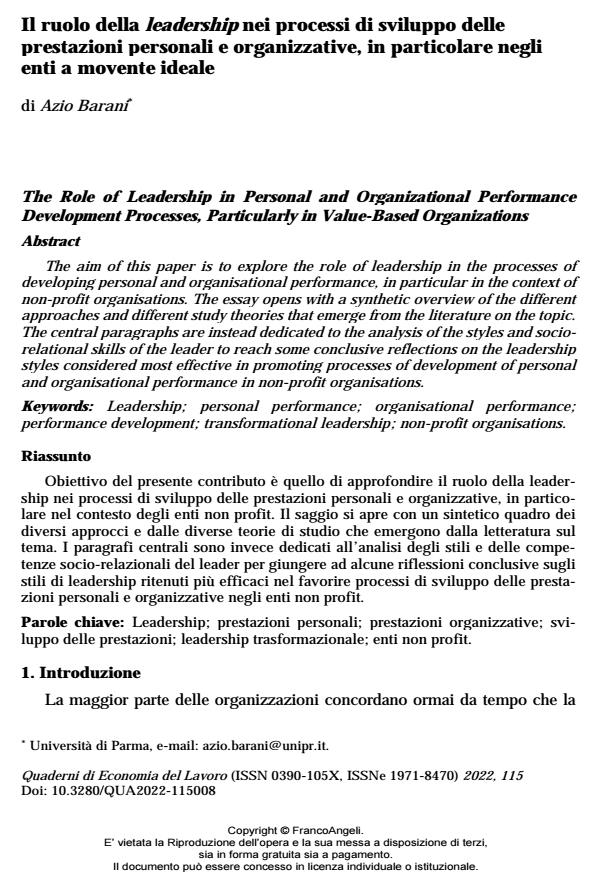The Role of Leadership in Personal and Organizational Performance Development Processes, Particularly in Value-Based Organizations
Journal title QUADERNI DI ECONOMIA DEL LAVORO
Author/s Azio Barani
Publishing Year 2025 Issue 2022/115
Language Italian Pages 48 P. 181-228 File size 251 KB
DOI 10.3280/QUA2022-115008
DOI is like a bar code for intellectual property: to have more infomation
click here
Below, you can see the article first page
If you want to buy this article in PDF format, you can do it, following the instructions to buy download credits

FrancoAngeli is member of Publishers International Linking Association, Inc (PILA), a not-for-profit association which run the CrossRef service enabling links to and from online scholarly content.
The aim of this paper is to explore the role of leadership in the processes of developing personal and organisational performance, in particular in the context of non-profit organisations. The essay opens with a synthetic overview of the different approaches and different study theories that emerge from the literature on the topic. The central paragraphs are instead dedicated to the analysis of the styles and socio-relational skills of the leader to reach some conclusive reflections on the leadership styles considered most effective in promoting processes of development of personal and organisational performance in non-profit organisations.
Keywords: Leadership; personal performance; organisational performance; performance development; transformational leadership; non-profit organisations.
Azio Barani, Il ruolo della leadership nei processi di sviluppo delle prestazioni personali e organizzative, in particolare negli enti a movente ideale in "QUADERNI DI ECONOMIA DEL LAVORO" 115/2022, pp 181-228, DOI: 10.3280/QUA2022-115008